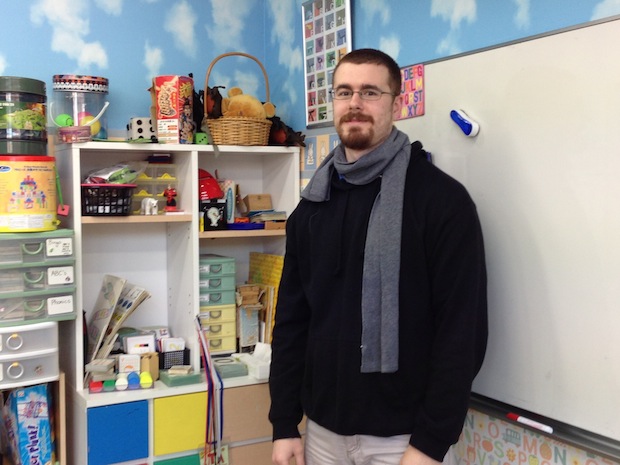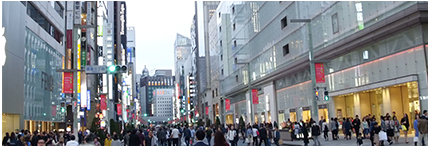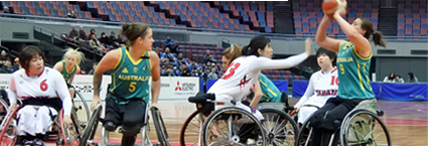Disaster-Affected Japan Shunned Rioting and Looting By AYANO KUBOTA
March 4, 2013
The voice of Ms. Ayano Kubota is regularly heard on the radio. She is herself a TV reporter as well. She is from Fukushima and since 2011, every Monday she works as an anchorperson for the Koriyama local radio program “Asa Koko”. She plays a proactive role in the coverage of issues related to Fukushima and is actively involved in the project “Voice of Fukushima”
<VOICE OF FUKUSHIMA, N.2>
“Just after the disaster, Japan has not known riots or lootings. That’s really something!” (Steve Dan, Teacher of English)
Steve Dan who studied at Okayama University is from Oregon State in the United States. He was a third-year college student when he first came to Japan. Seven years have passed since he relocated to Koriyama in February 2006.
A friend told him: “An English conversational school is advertizing for an English teaching position, why don’t you apply?”This is what finally brought Steve to Koriyama.
He met the disaster on his way to work, while walking on the street a few blocks away from Koriyama station.
“It was a very windy day. As the quake warning went off, it soon started to shake and splinters began to fall from buildings. I took refuge in a pharmacy. People who were inside were under shock. I can just remember that the shaking was violent.”
A week later, transportation timidly resumed and Steve fled 65 km away from Koriyama to Aizu Wakamatsu at his friend’s place. His family from the United States called soon urging him to “return home immediately”.
“At that time, I had no intention to go back to America. But, to appease the fears of my parents, I returned in order to explain my choice. In fact, I went back to America with the plan to return to Koriyama”.
In order to discuss the matter with his parents, Steve decided to return to America for a while.
“Throughout the ten days I spent in America, I faced my parents’ opposition repeatedly urging me: ‘don’t go back to Japan’. My parents were much concerned about the danger related with the nuclear accident. At the time, the US government urged its nationals to evacuate 80 km away from the disaster-affected zone. I actually followed instructions given by the Japanese government, which was urging people to evacuate 20 km outside the catastrophe-stricken area. I think that the US government urged its nationals who live in Japan to flee 80 km away from the affected zone in order to protect their lives by moving to safer areas.”
Steve has continued his efforts to talk over his plan with his parents. His intention to come back to Japan was strong. On the ninth day, he finally persuaded his parents. “You are the one who made that decision, but you really have to be very careful”, they said.
“I eventually had some fear about returning to Koriyama, though. But, I thought that as I work indoors, I would certainly not be exposed to radiation. If my job had to be performed outdoors, I would have had a different opinion. For the food, radiation dose measurements are properly done, so I think it’s alright. My concern is that very little information on the nuclear disaster is available. I think the news media does not report enough on the accident because, in fact, there is not enough information to broadcast. That’s why I do my best to gather information on my own.”
Why does Steve really want to stay in Koriyama?
“It’s because I love Japan!” In the summer of the year 2005, hurricane Katrina assailed the United States leaving an appalling number of casualties. Looting and rioting occurred in some areas at the time. In Japan, just after the 3.11 disaster nothing like that happened. “It’s really amazing”, said Steve.
It’s certainly one of the reasons that kept Steve in Japan.
“Two years have passed since the disaster, but it is like it occurred years ago. In fact, normal life has resumed. The catastrophe seems to have become like something of the past”.
After the disaster, many people fled and left Fukushima. However, like Steve, there are also people who decided to stay in Fukushima.
This is not a matter of being right or wrong. It’s a response to the question: “how am I going to spend my life from now on?” It is an answer each one has to give depending on his/her own experience and try to live up to one’s decision.
The people of Fukushima prefecture have certainly not forgotten a second this question since the day the disaster occurred. At the same time, there are a lot of people who are now still wandering and grappling with the same question.
Can the Japanese government and media convincingly affirm that they “have not betrayed” in front of people who, like Steve, love and continue to trust Japan?
[caption id="attachment_7000" align="alignleft" width="569"] Steve Dan, Teacher of English in Koriyama[/caption]
Steve Dan, Teacher of English in Koriyama[/caption]
※Radio programs on the “VOICE OF FUKUSHIMA” are also available in Japanese. Please, visit U3W (http:u3w.jp)
(Translated from Japanese by Willy Lukebana Toko)
(c)Ayano Kubota/NOBORDER Inc.







